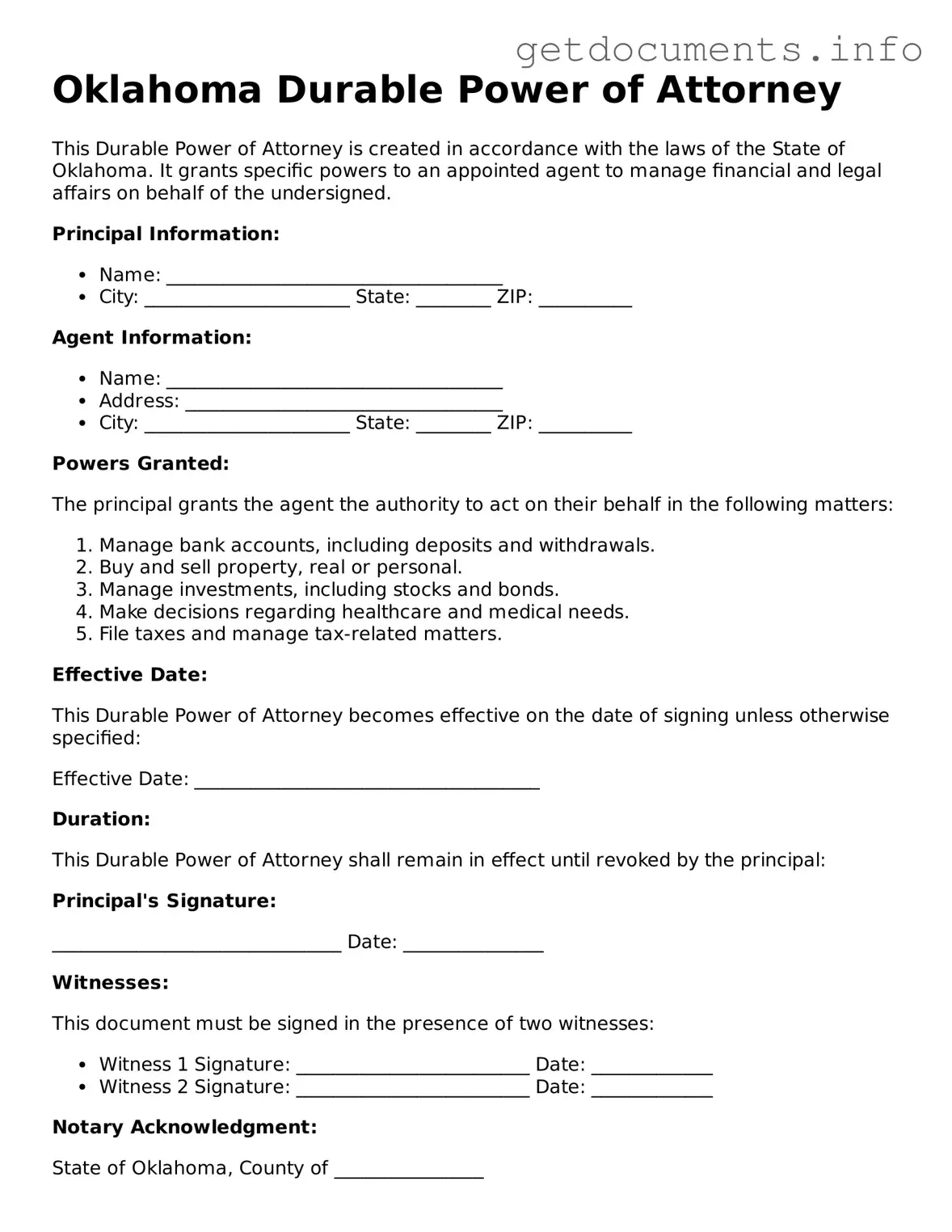Free Durable Power of Attorney Template for Oklahoma
A Durable Power of Attorney (DPOA) is a legal document that allows you to appoint someone to manage your financial and legal affairs if you become unable to do so yourself. This form remains effective even if you become incapacitated, ensuring that your wishes are respected. To take the first step in securing your future, consider filling out the form by clicking the button below.
Access Durable Power of Attorney Editor

Free Durable Power of Attorney Template for Oklahoma
Access Durable Power of Attorney Editor
Got places to be? Complete the form fast
Fill out Durable Power of Attorney online and avoid printing or scanning.
Access Durable Power of Attorney Editor
or
⇩ PDF File
